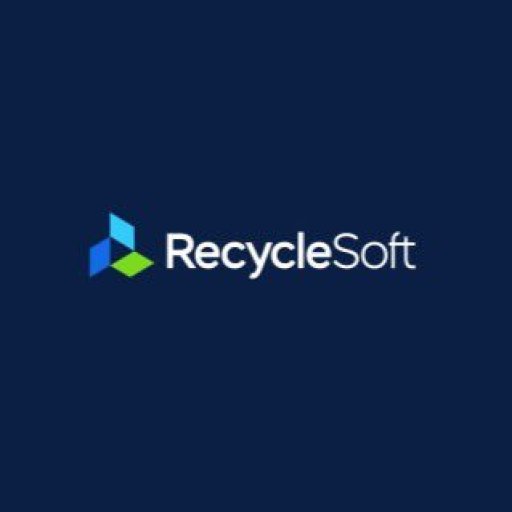


In today’s fast-paced, data-driven world, the recycling industry is under immense pressure to increase efficiency, transparency, and sustainability. With growing environmental regulations, customer expectations, and complex logistics, relying on outdated methods such as spreadsheets or manual tracking no longer works. This is where recycling software plays a vital role. Modern recycling management software helps recycling companies streamline operations, manage resources effectively, and make data-backed decisions that enhance both productivity and sustainability.
The recycling industry is evolving rapidly due to new policies, global sustainability goals, and technological innovation. Companies are no longer just managing waste—they are responsible for contributing to a circular economy where materials are reused, repurposed, and reintegrated into the supply chain. However, achieving this requires precise data collection, process automation, and performance tracking.
Without automation, recycling companies often face inefficiencies like misplaced inventory, inaccurate reporting, and compliance challenges. That’s why adopting recycling management software has become essential. It centralizes all critical processes, from material collection and processing to sales and reporting.
Recycling software is a specialized digital solution designed to optimize every stage of recycling operations. It can track materials from collection to processing, manage customer orders, handle logistics, and ensure compliance with local environmental regulations. Whether you are running a scrap yard, e-waste recycling facility, or waste management company, this software brings clarity, speed, and accuracy to your daily operations.
The best solutions integrate with existing business tools like accounting systems, CRM software, and carbon footprint software, giving managers a complete view of operational performance and sustainability metrics.
Let’s explore some of the most impactful benefits of implementing recycling management software in your organization:
From scheduling pickups to tracking inventory, automation reduces manual work. Staff can focus on high-value tasks instead of repetitive data entry. The software helps manage transportation routes, collection schedules, and resource allocation—all in one place.
Recycling companies handle large volumes of data daily. With recycling ERP software, all records—such as weight, volume, material type, and processing time—are automatically logged and updated in real-time. This ensures accuracy and helps generate reports for compliance and performance reviews.
Environmental regulations are becoming stricter across the globe. Authorities now require detailed documentation of waste collection, treatment, and recycling activities. A robust ERP software for waste management and recycling simplifies these processes by automating data collection, ensuring proper documentation, and generating compliance-ready reports.
Additionally, integration with carbon footprint software allows businesses to monitor their environmental impact and demonstrate transparency in sustainability reporting.
Modern recycling operations involve multiple stakeholders, including waste generators, transporters, and recyclers. With recycling management software, communication and coordination between these parties become seamless. Customers can track their recycling progress, access invoices, and get real-time updates—all through a digital platform.
Automation leads to reduced operational costs. With recycling software, you can optimize truck routes, reduce fuel consumption, and minimize downtime. Moreover, analytics tools within the software identify inefficiencies and help you make informed decisions that save money and resources.
In today’s competitive market, data is power. A powerful recycling ERP software provides insights into performance metrics, resource consumption, and profitability. Managers can identify trends, forecast demand, and make better business decisions using visual dashboards and analytics.
Sustainability is no longer optional—it’s a business necessity. Advanced recycling ERP software can integrate seamlessly with carbon footprint software to track greenhouse gas emissions and evaluate the environmental performance of recycling activities. This integrated approach helps companies align with sustainability goals and ESG (Environmental, Social, Governance) reporting standards.
Implementing ERP software for waste management and recycling revolutionizes how recycling companies function. ERP stands for Enterprise Resource Planning, and in this context, it acts as a centralized hub that connects all operational departments.
By having all these features integrated into a single platform, businesses can eliminate data silos, enhance productivity, and ensure compliance with ease.
Recycling companies play a direct role in reducing global carbon emissions by diverting waste from landfills. However, measuring and verifying this impact can be complex. This is where carbon footprint software becomes valuable.
By integrating with recycling management software, it helps calculate emission reductions achieved through recycling processes. Companies can showcase this data in sustainability reports, boosting their brand credibility and meeting ESG disclosure requirements.
This transparency builds trust among customers and stakeholders, while also helping companies identify areas for further environmental improvement.
Consider a mid-sized plastic recycling company that manually tracked its inventory and customer transactions. Due to inconsistent data entry, they struggled with delayed reporting and compliance challenges. After implementing recycling ERP software, the company achieved:
This transformation demonstrates how technology empowers recycling businesses to grow sustainably while maintaining operational efficiency.
As technology continues to advance, the future of recycling operations will become increasingly digital and data-centric. Some of the emerging trends include:
With continuous innovation, recycling management software will become an even more indispensable tool for companies aiming to lead in the sustainability era.
Every recycling company, regardless of size, can benefit from investing in modern recycling software. From automating day-to-day operations to ensuring compliance and sustainability, it delivers measurable value across the board.
The integration of recycling ERP software, ERP software for waste management and recycling, and carbon footprint software forms a powerful ecosystem that enables efficiency, transparency, and environmental accountability.
In a world increasingly focused on sustainability, embracing technology is not just a competitive advantage—it’s a responsibility. The future belongs to those who use smart tools to build a cleaner, greener planet.
| No comments yet. Be the first. |